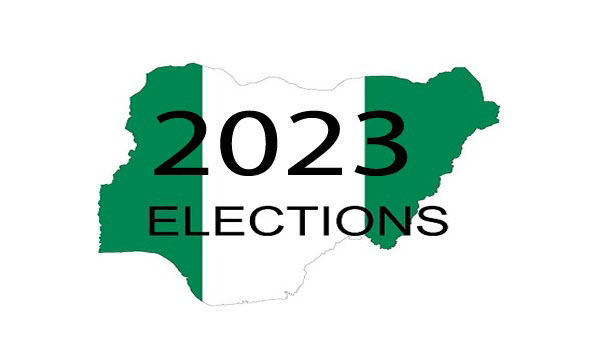2023 Nigeria Decides
Real Reasons APC Won More Governors Despite Presidential Election Upset

The February 25 presidential election has come and gone, but the dramatic events that shaped it are still subject of analysis.
To some observers, it was the first time since the return of democracy in 1999 after many years of military rule that more than two top contenders for the presidential race slugged it out.
Although 18 political parties fielded candidates for the poll, candidates of the ruling All Progressives Congress (APC), Bola Ahmed Tinubu; Peoples Democratic Party (PDP), Atiku Abubakar and Labour Party (LP), Peter Obi and New Nigeria People’s Party (NNPP), Rabiu Musa Kwankwaso, were the top contenders.
Unlike in the past when the presidential election was always a straight battle between the APC and the PDP, the situation was different this year with the entry of a third force, LP, which also played a role in shaping the electoral process.
Daily Trust on Sunday reports that the APC, which controls federal power, failed to win the presidential election in some states but won the March 18 governorship election in those states.
The APC won 12 states during the presidential election, PDP 12, LP 12, including the Federal Capital Territory (FCT), and the NNPP won one.
Some of the states won by the PDP or LP in the presidential poll were also taken by the APC during the governorship poll.
This scenario has thrown up surprises and questions as to what factors or strategies led to the changes in voting patterns
In the just concluded governorship election, the APC won in 15 states, including Sokoto, Katsina, Jigawa, Gombe, Lagos, Kwara, Niger, Yobe, Nasarawa, Cross River, Ebonyi, Ogun, Benue, Kaduna and Borno.
Tinubu, Adamu and Yakubu
On the other hand, the PDP won in eight states, namely, Plateau, Zamfara, Bauchi, Oyo, Delta, Rivers Enugu and Akwa Ibom, while the NNPP emerged victorious in Kano.
The Labour Party won in Abia, while the governorship election in Adamawa and Kebbi was declared inconclusive by the Independent National Electoral Commission (INEC).
The APC lost the governorship poll in Zamfara, where it won the presidential election. In Yobe, it was a different ball game. The party won the governorship election, where it lost the presidential poll.
Pundits said many northerners voted for PDP’s candidate, Atiku Abubakar because they felt he was one of them. It was also gathered that many northerners were also not happy with the administration of President Muhammadu Buhari and don’t trust Tinubu either, on account of his age.
Others, however, voted for Tinubu because of Muslim-Muslim ticket, influence of the elite like traditional rulers and the party structure. These factors all affected the voting pattern.
Daily Trust on Sunday reports that after APC’s defeat in the presidential election in some states, the party’s governorship candidates did things differently to win.
Our correspondents report that in some states where APC governors were seeking re-election, they were able to re-strategise by giving incentives to various categories of beneficiaries, including scholarships to students, agricultural loans to teachers, among others.
Tinubu’s victory
The presidential candidate of the APC, Tinubu, was declared the overall winner of the poll by the INEC, having defeated 17 other candidates after scoring a total of 8,794,726 votes.
He also scored over 25 per cent of the votes cast in 30 states, more than the 24 states constitutionally required.
The INEC chairman, Mahmood Yakubu, who announced the final results in Abuja, said Atiku Abubakar of the PDP came second in the election.
Atiku polled a total of 6,984,520 votes, while Peter Obi of the LP came third with a total of 6,101,533 votes.
Consequently, Tinubu, a former governor of Lagos State, was issued a certificate of return by INEC in Abuja.
Source: Daily Trust On Sunday
Send Us A Press Statement Advertise With Us Contact Us
And For More Nigerian News Visit GWG.NG